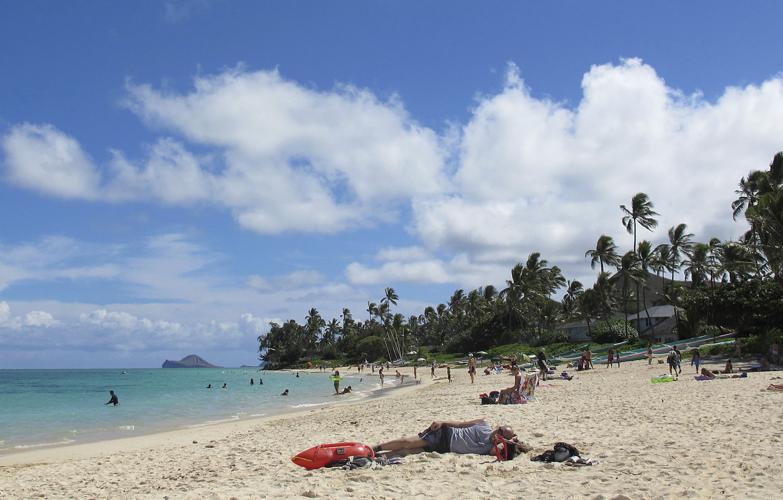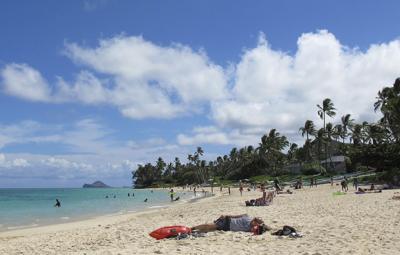Stop thinking of millennials as lazy, entitled young people in their twenties--that's the advice of a travel insights expert.
About 75 million people fall into the millenial age group that spans anywhere from 21 to 39, and something travel marketers often forget--as they age, so do millennials, and the majority of them now have families.
Millennial family travel is a huge market, and it's one Steve Cohen, Senior Vice President of Travel Insights at MMGY Global based in Orlando, said travel marketers aren't taking advantage of enough.
"They perceive millennials to be in college or recently out of college and living with their parents, but what many travel marketers and marketers in general fail to realize is the oldest millennials are almost 40 years old, and yet, the travel marketers and general marketers have a strategy to try to appeal to all millennials, and the difference in those two groups is substantial in terms of the messaging that they'll respond to, the channels that they use when consuming media," said Cohen. "So the the savvy travel marketer has parsed their strategy to really focus on the millennial family group or they maybe target the millennial single groups, but most are looking at the group in general, and I believe that's a failed approach."
For the last four years, millennial family travel has steadily risen.
"[The] reason for that? Primarily, [they're] further along in their careers, have more vacation time, have more disposable income, and they're using that disposable income for travel," suggested Cohen.
Social media and influencers play a big part in where millennials are going.
"Nearly twice as many millennials follow an influencer, as do members of other generations, and roughly twice as many tell us that they've made a decision--maybe not travel--but made a decision, a purchase decision, based on something that they've seen from an influencer...compared to the other generations."
Cohen presented his interesting insights at this year's New York Times Travel Show, where he talked about another common misconception about millennials when it comes to travel.
"When we first talked about millennials...the perception was that they all wanted to go zip lining in Costa Rica. They seem to have assimilated more to be similar to older generations," said Cohen.
The top five destinations that millennials are interested in visiting in the next two years:
- Hawaii Neighbor Islands
- Honolulu, HI
- Florida Keys and Key West
- New York City
- Washington, D.C.
"Recognize that those destinations are the exact same as if you were looking at the population as a whole," said Cohen.
Across generations, there's a slight variation on top destinations among older travelers to include San Francisco, California, and Boston, Massachusetts.
But as millennials continue to have families, Cohen predicts family travel will be a fast-growing sector. MMGY's survey said millennials would spend 15 percent on travel in 2018 than they did in 2017 for a total of $4,577 compared to $4,099.
"Our survey focuses on those who have an annual household income of $50,000+ so among millennials in that group, half of them have kids. As more of them have kids, and as those who have lower incomes attain a $50,000 income and have kids, there are going to be more families with kids traveling," he said.
Kids can play a big role on where families go, and we're not just talking about desires to go to Disney World.
"We've shown data that suggests upwards of 60 to 70 percent of children are involved, not only in what you're going to do when you go on vacation, but even things like where you're going to stay, and where you're going to," said Cohen. "Our latest statistics said about 76 percent of of families say that children have input into the vacation destination; close to 60 percent have input into the hotel, and roughly 60 percent have input into what is done while vacationing."
Fair to argue that advertisers should be marketing to kids, and not just the people with the money.
"It's both. Kids, the way they consume media is so different, so the savvy travel marketer trying to get the influence from the kids is advertising in both places; they're trying to get the parent's awareness of their destination or their brand and getting in front of the kids thorough a different channel, but creating that same awareness," said Cohen. "So for the parents, a broadcast strategy is much more effective. With kids, broadcast is probably not the best way top go, it's more advertising on social channels."
Kids are more likely see a destination on SnapChat and say, "Hey mom, dad, check this out, let's go here."
Next week on JetSet, more on Cohen's Travel Insights, and despite a slight slow down in travel, we'll talk more about where people are going, where they're staying, and why.















